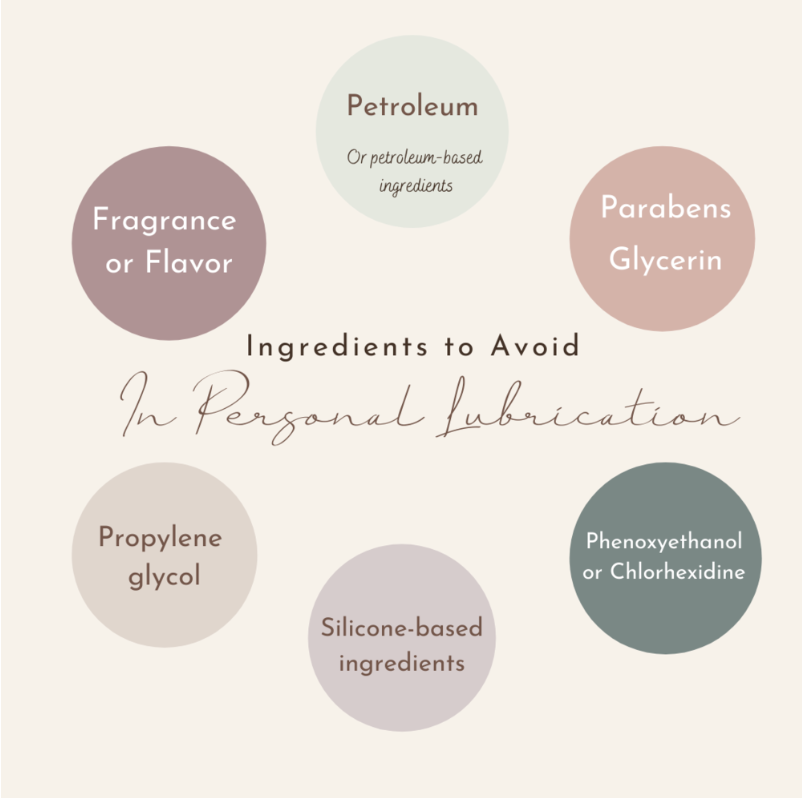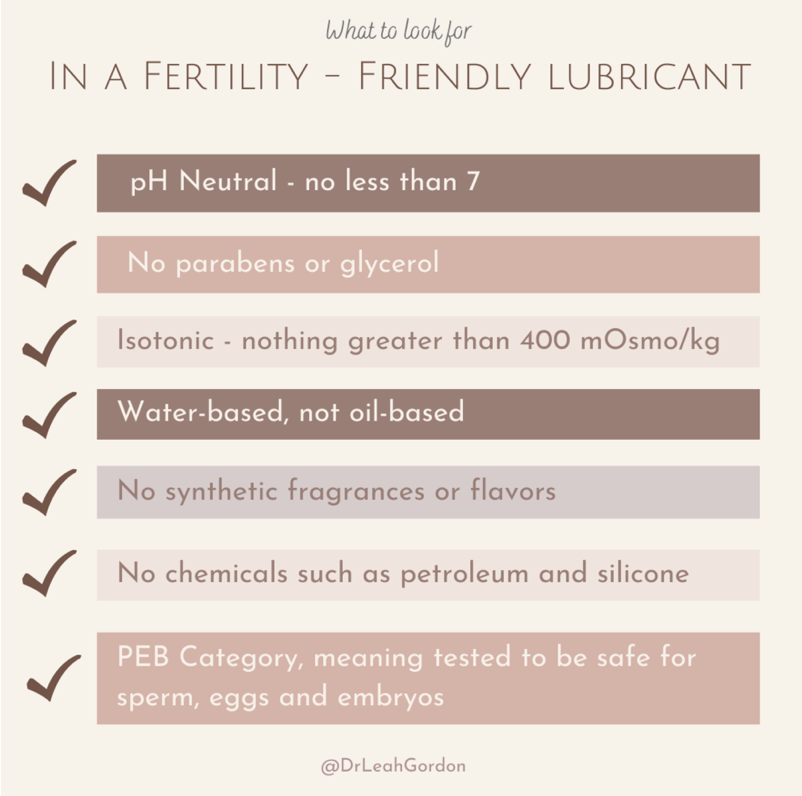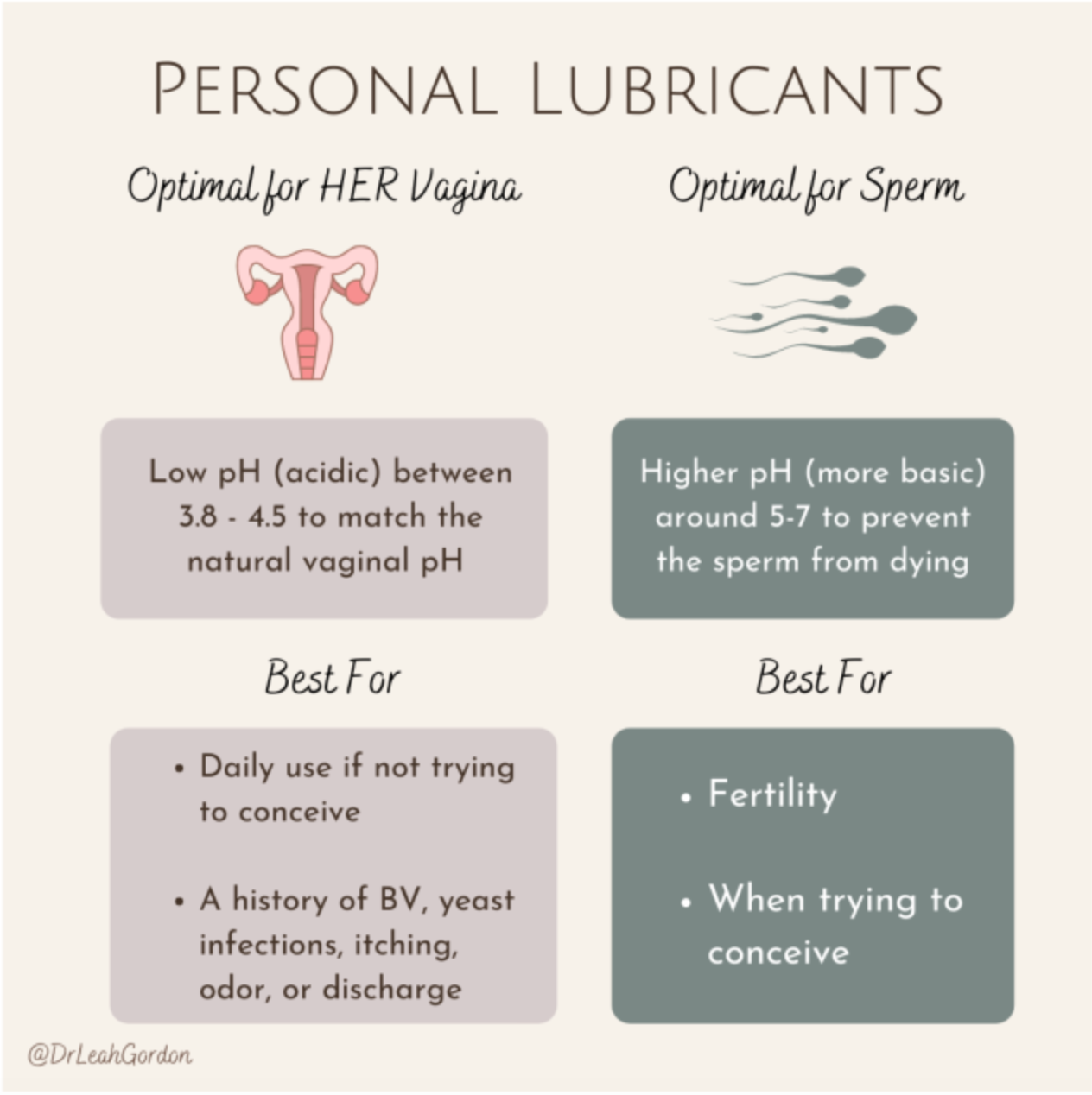
Not So Sexy: What You Need to Know About Personal Lubricants
Mar 29, 2022Ideally, if we are having sex, we are producing adequate amounts of lubrication. This allows for sex to be easier, less painful, and more enjoyable.
It is not uncommon, however, for women to not make enough lubrication for sexual intercourse and need a supplemental lubrication. In a recent survey, 65% of women reported using vaginal lubrication in the previous month. This need could be caused from dehydration, stress, or an infection or vaginal imbalance. It could be from a hormonal imbalance such as being on birth control, having low estrogen or testosterone, being post-menopausal, or having a lack of key building blocks such as vitamin E and healthy fats. Sometimes when a woman has a lower libido or has difficulty with arousal, they need help in the lubrication department as well. And sometimes women just like having extra lubrication, and there is nothing wrong with that!
Whatever the reason, you don’t want to have sex without enough lubrication, either naturally made or supplemented.
So if you have to choose a supplemental personal lubricant, which one do you choose?
Two keys things to keep in mind when choosing a lube
1) The ingredients
2) The pH
The Ingredients
If you have ever been to an adult entertainment store (where they sell lingerie, lube, and adult toys), have ever been invited to a friend’s network marketing intimates party, or have simply found personal lubricants at the grocery store next to the tampons and condoms, you have been exposed to the large variety of personal lubricants on the market.
Unfortunately, most likely any personal lubricant you have come in contact with in those avenues is full of unwanted chemicals, dyes, scents, and honestly, crap that you don't want to put in your vagina.
Your vagina is very absorbant
Your vaginal tissue is very absorbant and what you put in and around that tissue not only gets absorbed into your body and bloodstream, it also disrupts the vaginal microbiome that keeps our lady parts happy and healthy.
You especially don't want to use these "toxic" lubes when trying to conceive or when pregnant, since those chemicals can impact sperm, egg, and baby's health.
So when choosing a personal lubricant, be super mindful. They are not all created equal.
The Key Ingredients to Avoid
I always recommend consulting the ewg.org Skin Deep database, their app: Healthy Living, or the app Think Dirty when choosing any personal care products. They have done the work of vetting companies for you.
If you need to read labels, however, avoid the following ingredients.
Dyes, Flavors, & Fragrances aka Phthalates
Bubble gum-flavored or strawberry scented lube may sound exciting, but they are not good for you. Anything that has artificial flavor or fragrance often contain nasty chemicals called phthalates. These are endocrine (hormone) disrupting agents that have also been found to damage the liver, kidneys, lungs, and reproductive organs.
Parabens
These are preservatives that mimic estrogen, which we don’t want as this can increase the risk of estrogen-based cancers such as breast, uterine, and cervical, and contribute to estrogen dominance. They have also been shown to cause irritation and genital rashes.
Petroleum or petroleum-based ingredients
Common in many multi-purpose lubricants, like petroleum jelly (Vaseline), these chemicals can coat your tissues and affect your normal function and permeability. They also can contain impurities that can affect your health and are linked to certain conditions such as cancer.
Propylene glycol
This ingredient can be a major vaginal irritant for many women, can trigger allergies or ezcema, and is ‘expected to be toxic or harmful’ according to the ewg.org.
Glycerin
This is a type of sugar which can cause yeast and other unwanted bacteria to grow. This can lead to yeast infections, odor, vagina itching, irritation; basically everything we don’t want to experience in our lady parts.
Chlorhexidine
This chemical can trigger irritation and toxic effects in some women. It is often found in multi-purpose lubricants.
Phenoxyethanol
This chemical has been associated with reproductive damage, depressed immunity, and reduced nervous system function in newborns when used in higher amounts.
Silicone-based ingredients
These chemicals also coat your tissues affecting their normal function and have been linked to other toxic effects. They can be labeled under a variety of names, including dimethicone or methyl polysiloxane.

pH Matters
A healthy vaginal pH level is between 3.8 and 4.5, which is fairly acidic, much more acidic than water, for instance, with a pH around 7. This acidity helps to keep harmful bacteria at bay and encourages healthy vaginal microbiome growth. The main strains of bacteria that should be present in your vagina are called Lactobacillus. These bacteria are a big reason why the pH remains low (acidic).
Lube for Vaginal Health
If your vagina becomes more basic, or alkaline, the pH increases. This allows for unwanted bacteria and yeast to grow, often leading to yeast infections, bacterial vaginosis (BV), and other unwanted symptoms such as itching, irritation, odor, discharge, and sometimes even pain with intercourse.
If you have a history of unwanted vaginal symptoms, it’s important that you choose a lube with a low pH. It should state on the bottle a pH between 3.8 and 4.5. If it doesn’t, don’t buy it.
And remember to avoid the toxic chemicals, dyes, and fragrances already mentioned because these often disrupt your vaginal microbiome as well.
My favorite non-toxic, low pH lubes are the brands Good Clean Love, Sustain Natural, and Maude.
If you want more support with optimizing or rebalancing your vaginal health, check out my Lady Part Repair Protocol Program.
Lady Part Repair Protocol
Lube for Fertility
The ironic thing about pH is when you are trying to conceive, you may want to reconsider the acidic lube.
Sperm prefer a more alkaline environment, with a pH around 5-7. The highly acidic vagina can make it harder for them to swim, survive, and ultimately lead to conception.
There are also other chemicals and ingredients in lube that can affect sperm, so it’s important to use a specific “fertility friendly” lube when trying to conceive.
This may not matter as much if your man has millions of high-powered swimmers, but if you are struggling to conceive or know that your partner doesn’t have the most ideal sperm count or quality, you may want to switch up lubes.
The most common fertility friendly lube is called PreSeed by First Response, however it contains parabens and other unwanted chemicals. My favorite non-toxic fertility-friendly lube is called Baby Dance by Fairhaven Health.
This is a great checklist you can use when looking at potential lubricant options in relation to fertility.

Ultrasound Lube / Gel and the Vagina
The lubrication or gel used in transvaginal ultrasounds may disrupt the vaginal microbiome, potentially leading to more unwanted bacteria, yeast, and symptoms such as discharge, itching, irritation, and odor. This disruption can also affect fertility.
This is especially important for women going through fertility treatments who do ultrasounds often while trying to conceive.
If you are someone who is needing multiple transvaginal ultrasounds, I recommend asking your provider if they are open to using a lube of your choice instead. If they aren't, consider taking vaginal and oral probiotics around the times of the ultrasound with the following two strains: Lactobacillus rhamnosus and Lactobacillus reuteri.
See my favorite brands under the Gut Support Protocol here.
What about Coconut Oil or Other Natural Oils?
A rough rule of thumb I have used when it comes to the products I use on my body is if I could eat it, I can rub it on my body and put it in my vagina, since it all gets absorbed regardless. This led me to using coconut oil as my main personal lubricant for years.
I then started having recurrent yeast infections, vaginal odor, and irritation. It turns out coconut oil is highly alkaline, with a pH around 7. As mentioned earlier, this can disrupt your vaginal microbiome in a negative way. Coconut oil also has anti-microbial properties, which isn’t what we want for the good bacteria that is suppose to be in our vaginas.
Oil-based lubes can also cause latex condoms to break, so if you are not trying to conceive, keep this in mind when using oils.
So although I am always a fan of using 100% natural, nature-made products, I recommend you look up the pH of any natural oil you are using and be aware of how that could impact either your vaginal health or sperm health. And if you notice issues after using it, it may not be the best for your body.


